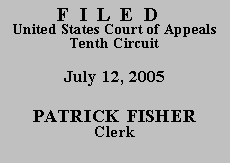

|
UNITED STATES OF AMERICA, |
|
Before BRISCOE, LUCERO, and MURPHY, Circuit Judges.
the offense level of the United States Sentencing Guidelines to be applied in this case shall be offense level 40, and the Criminal History Category shall be II, for a resulting sentencing range of 324-405 months. The parties agree that the actual sentence to be applied within that range shall be left to the discretion of the Court, with the United States free to argue for a sentence at the high end of the range, and the Defendant free to argue for a sentence at the low end of the range. The parties agree that the rationale for this compromise is as follows: The Defendant is presently charged with Murder in the First Degree, and he understands that if convicted at trial of this offense he would face a mandatory sentence of life without parole. The United States understands and acknowledges that based on the evidence of this case the Defendant will be entitled to a lesser included offense instruction of Murder in the Second Degree. Neither party can be certain of a jury verdict, and they therefore desire to reach a compromise. The actual sentencing range selected here is the functional equivalent of the sentence which would be imposed if Defendant entered a plea of guilty to Murder in the First Degree, and then received a reduction of three offense levels, which reduction is normally afforded to defendants who accept responsibility for their actions, but which reduction is not otherwise available in this case due to the mandatory nature of the statutory penalty for Murder in [the] First Degree, with or without a plea and acceptance of responsibility.
After reviewing the presentence report, the district court accepted the plea and sentenced Martinez to a prison term of 336 months, five years of supervised release, restitution in the amount of $5,530.81, and a $1,000 fine.(3) Martinez now appeals, arguing that his sentence must be reversed because it (1) represents an upward departure unsupported by factual findings as required by 18 U.S.C. § 3553(c)(4) and (2) violates his Sixth Amendment rights under Blakely v. Washington, 124 S. Ct. 2531 (2004).
Unless the sentence imposed is greater than the sentence set forth in the plea agreement, a defendant sentenced pursuant to a Rule 11(c)(1)(C) plea agreement may only appeal if his sentence was imposed "in violation of law" or "as a result of an incorrect application of the sentencing guidelines." 18 U.S.C. § 3742(a)(1)(2), (c)(1). Because Martinez's sentence conformed to the stipulated sentence in his Rule 11(c)(1)(C) plea agreement and was less than the statutory maximum, it did not violate the law.(5) See United States v. Brown, 316 F.3d 1151, 1160 n.4 (10th Cir. 2003); United States v. Veri, 108 F.3d 1311, 1315 (10th Cir. 1997). Martinez also cannot challenge his sentence under United States v. Booker, 125 S. Ct. 738 (2005),(6) because he admitted all relevant facts and stipulated to the specific sentence he received. See United States v. Silva, No. 04-1522, 2005 WL 1581267, at *1 (10th Cir. July 7, 2005). Similarly, because Martinez's sentence was imposed pursuant to a Rule 11(c)(1)(C) plea agreement, the district court did not apply the Sentencing Guidelines, let alone apply the Guidelines incorrectly. See Fed. R. Crim. P. 11(c)(1)(C) (agreement is binding on the court); Veri, 108 F.3d at 1313. The district court's application of the provisions of the Rule 11(c)(1)(C) plea agreement resulted in a sentence that was neither "in violation of law" nor "an incorrect application of the sentencing guidelines." 18 U.S.C. § 3742(a)(1)(2), (c)(1). This court therefore lacks jurisdiction to review Martinez's sentence and the appeal is DISMISSED.
ENTERED FOR THE COURT
Michael R. Murphy
Circuit Judge
*. This order and judgment is not binding precedent, except under the doctrines of law of the case, res judicata and collateral estoppel. The court generally disfavors the citation of orders and judgments; nevertheless, an order and judgment may be cited under the terms and conditions of 10th Cir. R. 36.3.
1.Martinez, a member of the Northern Arapaho Indian tribe, killed the victim on the Wind River Indian Reservation.
2.Under a Rule 11(c)(1)(C) plea agreement, an attorney for the government may "agree that a specific sentence or sentencing range is the appropriate disposition of the case, or that a particular provision of the Sentencing Guidelines, or policy statement, or sentencing factor does or does not apply (such a recommendation or request binds the court once the court accepts the plea agreement)." Fed. R. Crim. P. 11(c)(1)(C).
3.At sentencing, Martinez asked to withdraw his guilty plea or, in the alternative, that he be allowed more time before sentencing to consider whether to withdraw his plea. The court denied the request. Martinez does not challenge this on appeal. Nor does Martinez challenge the knowing and voluntary nature of his plea.
4.Martinez asserts that had he been sentenced based solely on a guilty plea to second degree murder, the applicable sentencing range would have been 121-151 months.
5.The statutory maximum penalty for second degree murder is life in prison. 18 U.S.C. § 1111(b).
6.In United States v. Booker, the Supreme Court extended the holding of Blakely v. Washington, 124 S. Ct. 2531 (2004), to the federal Sentencing Guidelines, concluding that the Sixth Amendment requires that "[a]ny fact (other than a prior conviction) which is necessary to support a sentence exceeding the maximum authorized by the facts established by a plea of guilty or a jury verdict must be admitted by the defendant or proved to a jury beyond a reasonable doubt." Booker, 125 S. Ct. 738, 756 (2005). The Court also rendered the Guidelines advisory by excising 18 U.S.C. § 3553(b)(1). Id. at 764.